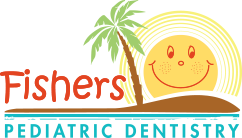Any child… Any need.
Going to the dentist isn’t a favorite destination for anyone. Here at Fishers Pediatric Dentistry, we recognize that some children may have certain needs and require more specialized care. Our doctors and team have been specially trained to attend to the needs of children with sensory sensitivities, oral aversions or communication issues and we go to great lengths to adapt to what makes them most comfortable in the dental environment.
Preparing your child for the dental experience:
- Schedule a Happy Visit to familiarize your child with the office in a non-threatening way (taking a tour, observing others during their visit and listening to / feeling the instruments that we use)
- Use positive language when discussing dental visits (avoid words like scary, shot, drill, poke, scrape).
- Practice at home. Our office provides desensitizing kits that include items that we use during a routine visit: a disposable mirror, gloves, mask, gauze, polishing cup & paste.
- Read a social story to set expectations of what the visit will be like.
- Model the dental environment.
- Practice by having your child lie down on the couch or bed and look at their teeth.
- Use a flashlight and a mirror to look at their teeth
- Use a powered toothbrush to simulate the vibrations and sounds of when we polish the teeth
- Get creative and be consistent with your brushing routine at home! There are no rules stating that brushing has to be done in the bathroom. Try doing it in the kitchen after a meal, or during a bath.
Tips for kids with Special Needs:
- Begin EARLY! Dental disease is preventable regardless of one’s individual condition.
- For younger children, do a lap to lap with another adult to be able to have access and more control to see and brush your child’s teeth.
- Brush your child’s teeth from behind instead of from the front. This allows you to have better access to reach those hard to reach areas.
- If your child dislikes toothpaste, no worries! We suggest brushing with a dry brush first then add a smear of fluoridated toothpaste (or dip the brush in a fluoridated rinse) for one last pass.
- Struggle getting your child to open wide? Use the handle of a bigger brush to help prop your child’s mouth open on one side while you brush the opposite side.
- Medications play a role in oral health. Liquid medications tend to have high dosage of sugar so try to give meds before brushing or at the very least be sure to rinse with water. Certain mediations may also cause dry-mouth which can increase the chance for tooth decay. Rinsing with water or swabbing the mouth out throughout the day will help improve salivary flow.
- Limit snacking throughout the day. Every time your child consumes carbohydrates (chips, crackers, cookies etc) or sugary drinks it creates "cavity mode" and takes 20-30 minutes for the mouth to neutralize to normal. Moderation is key.
- Children who are fed via gastrostomy tube still need their teeth brushed twice a day.
- Celebrate Milestones – either at home or even at the dental office, celebrate the small victories to keep it positive.
Whatever the challenge, we are here to help you come up with a personalized plan to fit your child’s specific needs. We are dedicated to creating the best experience possible for both you and your child.
